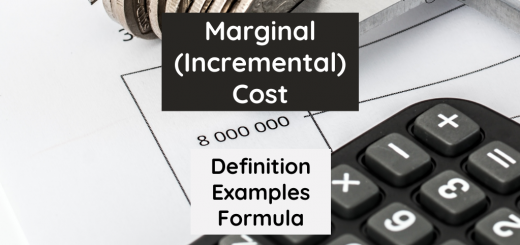Accounting Cost – Definition, Explanation, with Examples
Accounting Cost Definition
Accounting cost refers to the cost of an activity recorded in the financials of the company. Accounting cost simply can be an expense or liability included in the company’s financial reports.
Accounting cost is recorded in the financial statements of the company as follows,
- If the Accounting Cost has been Spent – The relevant cash outflow will be Recorded in the Statement of Cash Flow (SOCF).
- If the Accounting Cost has Not Yet Been Consumed – The cost will be Recorded in the Company’s Statement of Financial Position (SOFP / Balance Sheet).
- If the Accounting Cost has Been Consumed – The cost will be Recorded in the Statement of Profit or Loss (SOPL / Income Statement).
Understanding Accounting Cost with Examples
The decision of what cost to be used as the Accounting Cost of an activity depends on the requirement/situation. Assume if the directors of a production company want to know the accounting cost of a product. If the Directors want to make a short-term pricing decision, then only the variable cost of the product will be adequate. But if Directors want to make a long-term pricing decision with covering the company overheads then the accounting cost should cover the fixed cost and variable cost both.
Accounting Cost Examples
Following are some examples of Accounting Costs,
- Entertainment Expenses
- Loan Repayment Cost
- Administration Expenses
- Salaries and Wages
- Distribution Expenses
- Travel Expenses
- Insurance Cost
- Electricity, Water (Utility Expenses)
- Rental Cost
- Accounting costs can include any other expenses during normal business operations.
Accounting Costs include Several Types of Costs which are listed below.
- Fixed Costs
- Variable Costs
- Direct Costs
- Indirect Costs
- Operating Costs
Read More:
- Economic Cost – Definition, Explanation, with Examples
- Operating Cost – Definition, Explanation, with Examples
- Controllable Cost – Definition, Explanation, with Examples


